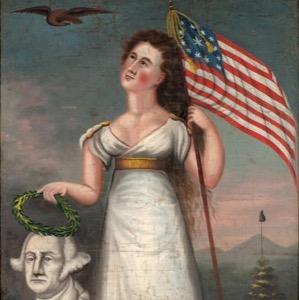Online Asynchronous
Anthony Russomanno
This course explores the settlement and expansion of the American colonies as a pluralistic society in which attempts at inclusion were challenged by distinct structures of inequity and hierarchy, the establishment and expansion of the United States during the first half of the nineteenth century, and the social, economic and political divisions that lead to the outbreak of Civil War and continuing regional variations following 1865.
This course explores contact among and the resulting experiences of North American Indigenous peoples, Europeans, Africans, Latino/as, and Asian/Pacific Americans and the complex societies and cultures and structures of power that developed from the period of contact through the expansion of North American colonies in the seventeenth and eighteenth centuries.
It examines broad themes of the colonial period, comparing historical ideas about social order, politics, economics, and labor with primary sources that show the varied experiences of people based on their race, sex, ethnicity, social and legal status, and religion.
The course also explores the establishment of the United States after a Revolutionary period in which many different sorts of people struggled to realize popular conceptions of liberty for themselves. It further examines the United States’ expansion during the first half of the nineteenth century and the social, economic, and political controversies over race and slavery that ultimately led to the outbreak of the Civil War.
Finally, the course addresses continuing regional variations following 1865, and how policies of Reconstruction hardened social and legal inequalities, including Jim Crow segregations, that continue to shape American conversations about identity, inclusion, and the equal protection of the law.
